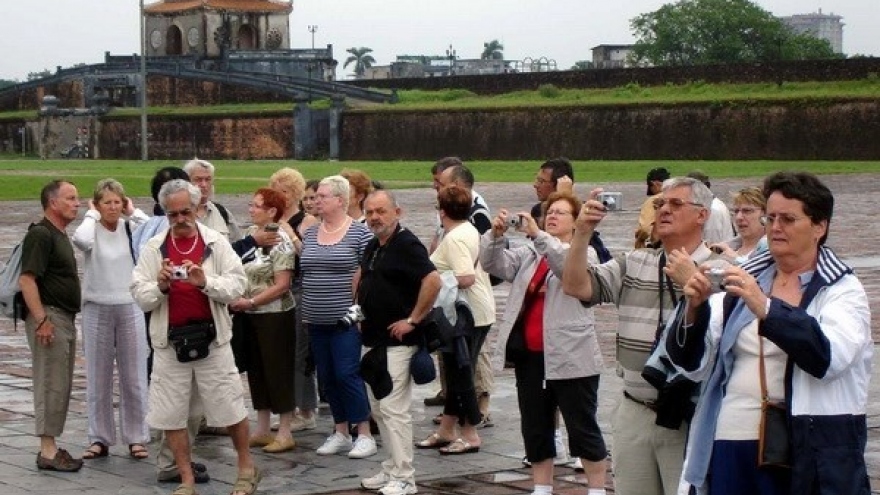Relaxed visa policy could be ‘magic wand’ for Vietnam’s tourism
Relaxing its visa policy could be Vietnam’s ‘magic wand’ to attract more foreign visitors and transform itself into a top regional and global destination, experts say.
 |
| Foreign tourists visit Ba Na Hills in the central resort city of Da Nang. Photo: Sun Group |
Experts attribute the remarkable growth to the country’s visa waiver program for citizens from five European countries – Germany, France, the UK, Italy, and Spain.
First launched in July 2015, the visa-free policy immediately boosted tourism from these countries by 13.8%-29% over the following year.
The yearly growth rate was maintained at levels between six and 20% in 2017.
“Such growth is rare if not unprecedented, especially for tourists from countries as geographically distant from Vietnam as Western Europe,” said Nguyen Van Tuan, director of the Vietnam National Administration of Tourism.
“It shows that the visa waiver program positively impacted Vietnam’s tourism.”
Since Vietnam implemented a visa-free policy for Japanese passport holders in July 2004, the number of annual tourists from Japan has increased threefold, from 267,000 in 2004 to nearly 800,000 in 2017.
Japan is now Vietnam’s third-largest market for foreign tourists.
The numer of visitors from the Republic of Korea saw a tenfold rise from 233,000 in 2004 to more than 2.4 million in 2017, following the introduction of a visa waiver program for Korean citizens in 2004.
Similar results were seen for visa exemptions given to Danish, Norwegian, Finnish, and Swedish nationals in 2005 and Russian nationals in 2009.
 |
| Two foreign tourists visit Fansipan Mountain, Vietnam’s highest peak, in Lao Cai Province, northern Vietnam. Photo: Sun Group |
“The fee for a single-entry tourist visa to Vietnam is currently US$25, a minimal fee compared to how much a tourist spends during their stay,” said Nguyen Thi Huyen, CEO of local tour operator Vietrantour.
“A tourist from Europe spends an average of US$100-US$130 a day, and they tend to stay in the country for seven to ten days. It benefits the community by boosting the GDP and creating jobs for locals.”
Despite the benefits, Vietnam only offers visa exemptions for citizens from 23 countries and territories as of April 2018.
In comparison, other popular tourist destinations in Southeast Asia, such as Singapore, Malaysia, Indonesia, and the Philippines, have visa waiver policies for between 160 and 169 countries, even though not all of them hold bilateral visa waiver agreements.
Vietnam’s e-visa and visa-on-arrival policies are also considered less competitive than emerging regional markets such as Cambodia, Laos, and Myanmar.
Tour operators complain about the fact that some visa waiver programs, such as the one for citizens from five Western European countries, need to be renewed yearly, leaving travel agencies walking a thin line when targeting those markets.
These drawbacks contribute to Vietnam’s rank of 116 out of 136 countries in terms of visa requirements, according to a 2017 tourism competitiveness report published by the World Economic Forum.
“For tourists from developed countries, what troubles them is not the visa fee but the arduous process of applying for a visa,” said Dr. Luong Hoai Nam, deputy general director of Vietstar Airlines.
Vietnam reported tourism revenue of VND510 trillion (US$22.36 billion) last year, a much larger number than the revenues it generated from visa fees, Nam said, citing statistics from the tourism administration.
With more relaxed visa policies, Vietnam’s tourist industry could be freed from its chains and become a popular destination, capable of competing with others in the region, experts say.


